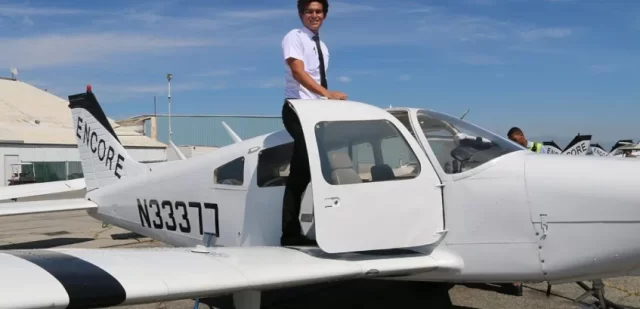Becoming a pilot can be an incredibly fulfilling career, but it can also be financially challenging. With high costs associated with flight training and low starting salaries, it can take some time to start making a decent income as a pilot. However, there are several ways that pilots can earn money, even in their early stages of their careers. In this article, we’ll explore different ways that pilots can make money, both in and out of the cockpit.
Ways to Make Money as a Pilot
Flight Instruction
One of the most common ways that pilots earn money is by providing flight instruction. This is a great option for pilots who enjoy teaching and sharing their love of aviation with others. Pilots can work as instructors for flight schools, universities, or independently as freelance instructors. The amount of money that can be earned varies depending on the type of instruction, the location, and the pilot’s experience level.
Airline Pilot
Working as an airline pilot is often seen as the ultimate goal for many pilots. While it can take some time to work up the ranks to become a captain, airline pilots typically enjoy competitive salaries and benefits. Entry-level salaries can be low, but as pilots gain experience and seniority, their earning potential increases significantly.
Charter Pilot
Charter pilots fly private planes for individuals or companies. This type of flying can be lucrative, especially for pilots who are willing to work irregular schedules and are available on short notice. Charter pilots typically earn a set hourly rate or a salary, with bonuses for overnight trips or international travel.
Corporate Pilot
Corporate pilots fly for a company or individual who owns a private jet or fleet of aircraft. This type of flying can be more stable than charter flying, but the salaries may be lower. Some corporate pilots receive additional benefits, such as stock options or health insurance.
Agricultural Pilot
Agricultural pilots fly planes that are used for crop dusting or spraying. While this type of flying may not be for everyone, it can be a profitable niche for pilots who are interested in agricultural aviation.
Test Pilot
Test pilots are responsible for testing new aircraft or modifications to existing aircraft. While this type of flying can be exciting, it also requires extensive training and experience. Test pilots typically earn high salaries, but the job can be risky and requires a high level of skill.
Military Pilot
Pilots who serve in the military can earn a steady income and benefits such as health insurance and retirement benefits. While military pilots are typically trained to fly specific types of aircraft, this experience can be valuable when transitioning to a civilian flying job.
Freelance Pilot
Freelance pilots fly for individuals or companies who need a pilot for a short period of time. This can include ferrying airplanes from one location to another, or providing pilot services for a specific event or project. Freelance pilots typically earn an hourly rate or a flat fee for their services.
Airshow Pilot
Airshow pilots fly aerobatic routines at airshows and other events. This type of flying requires a high level of skill and experience, but it can be very lucrative for pilots who are successful in the industry.
Ferry Pilot
Ferry pilots are responsible for transporting airplanes from one location to another. This can include delivering new aircraft to customers or relocating planes for maintenance or storage. Ferry pilots typically earn a set fee per trip or per mile.
Aviation Writer or Blogger
Pilots who have a passion for writing can earn money by writing about aviation topics. This can include writing articles for aviation magazines, blogging about aviation topics, or writing books about aviation. The amount of money that can be earned varies depending on the type of writing and the pilot’s experience level.
Aviation Photographer or Videographer
Pilots who have an interest in photography or videography can earn money by taking photos or videos of airplanes and aviation events. This can include selling photos or videos to aviation magazines, websites, or other publications.
Additional Income Sources for Pilots
In addition to flying jobs, there are several other ways that pilots can earn money in the aviation industry.
Aviation Insurance
Pilots with a background in insurance can work as aviation insurance agents or brokers. This type of work involves selling insurance policies to pilots and aircraft owners.
Aircraft Appraisals
Pilots who are knowledgeable about aircraft can work as aircraft appraisers. This involves determining the value of an aircraft for sale or insurance purposes.
Aircraft Sales
Pilots can work in aircraft sales, selling new or used aircraft to customers. This can be a lucrative career for pilots with good sales skills and knowledge of the aviation industry.
Aircraft Management
Pilots can work as aircraft managers, overseeing the maintenance, scheduling, and operations of private jets or fleets of aircraft.
Aviation Consulting
Pilots with a strong background in aviation can work as consultants, providing advice and guidance to individuals or companies in the aviation industry.
How to Maximize Your Earnings as a Pilot
While many of the careers listed above can be financially rewarding, there are several things that pilots can do to maximize their earnings potential.
Build Flight Time
One of the most important things that pilots can do to increase their earning potential is to build flight time. The more flight time a pilot has, the more valuable they are to potential employers.
Pursue Advanced Certifications

Pilots who have advanced certifications, such as an airline transport pilot (ATP) certificate or a type rating in a specific aircraft, can earn more money than pilots with only a private pilot’s license.
Network
Networking with other pilots and professionals in the aviation industry can help pilots learn about new job opportunities and advance their careers.
Consider Relocating
Pilots who are willing to relocate to areas with high demand for pilots can often find better job opportunities and higher salaries.
Keep Your Skills Sharp
Pilots who continue to train and learn new skills are more valuable to potential employers than pilots who have not kept up with the latest developments in the industry.
Conclusion
While becoming a pilot can be a challenging and expensive process, there are many ways that pilots can earn money, both in and out of the cockpit. By pursuing different types of flying jobs, as well as other income sources in the aviation industry, pilots can maximize their earnings potential and establish a successful and fulfilling career in aviation. As with any career, it takes hard work, dedication, and a willingness to learn and adapt to new challenges.
FAQs
1.How much do pilots make?
The salary of a pilot can vary greatly depending on the type of flying they do, their level of experience, and the company they work for. On average, commercial airline pilots earn around $121,000 per year, while private pilots can earn anywhere from $30,000 to $200,000 per year depending on their experience and the type of flying they do.
2.Do pilots get paid for training?
Commercial airline pilots typically receive paid training, as they are hired by airlines to fly for them. Private pilots, on the other hand, are responsible for paying for their own training.
3.How long does it take to become a pilot?
The amount of time it takes to become a pilot can vary depending on the type of flying you want to do and your level of commitment to the training process. On average, it takes around 18 months to 2 years to obtain a private pilot’s license, while becoming a commercial airline pilot can take anywhere from 3 to 5 years.
4.What type of education is required to become a pilot?
There is no specific educational requirement to become a pilot, but most pilots have at least a high school diploma or equivalent. Many pilots also have some college education or a degree in a related field such as aviation or aerospace engineering.
5.Can I become a pilot if I wear glasses?
Yes, pilots who wear glasses or contact lenses can still fly, as long as their vision meets the requirements set by the Federal Aviation Administration (FAA). Pilots with corrected vision can fly with or without glasses or contact lenses, depending on their preference and the specific requirements of their flying job.








